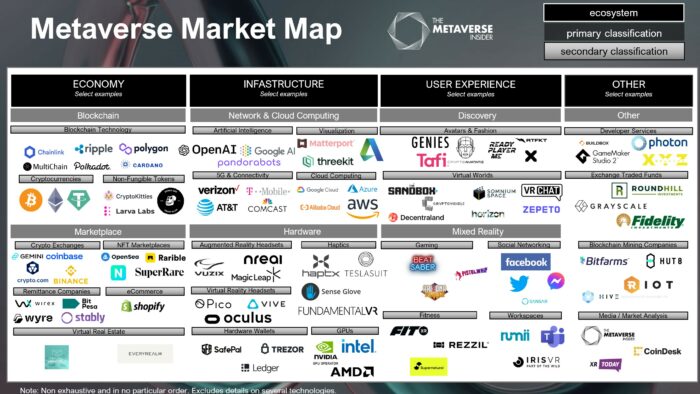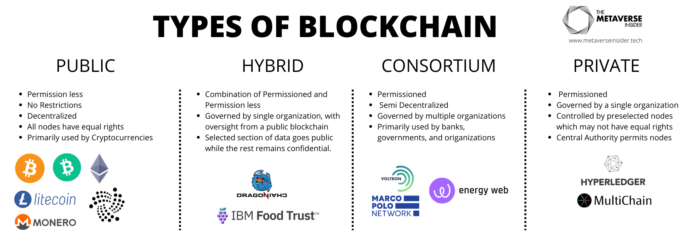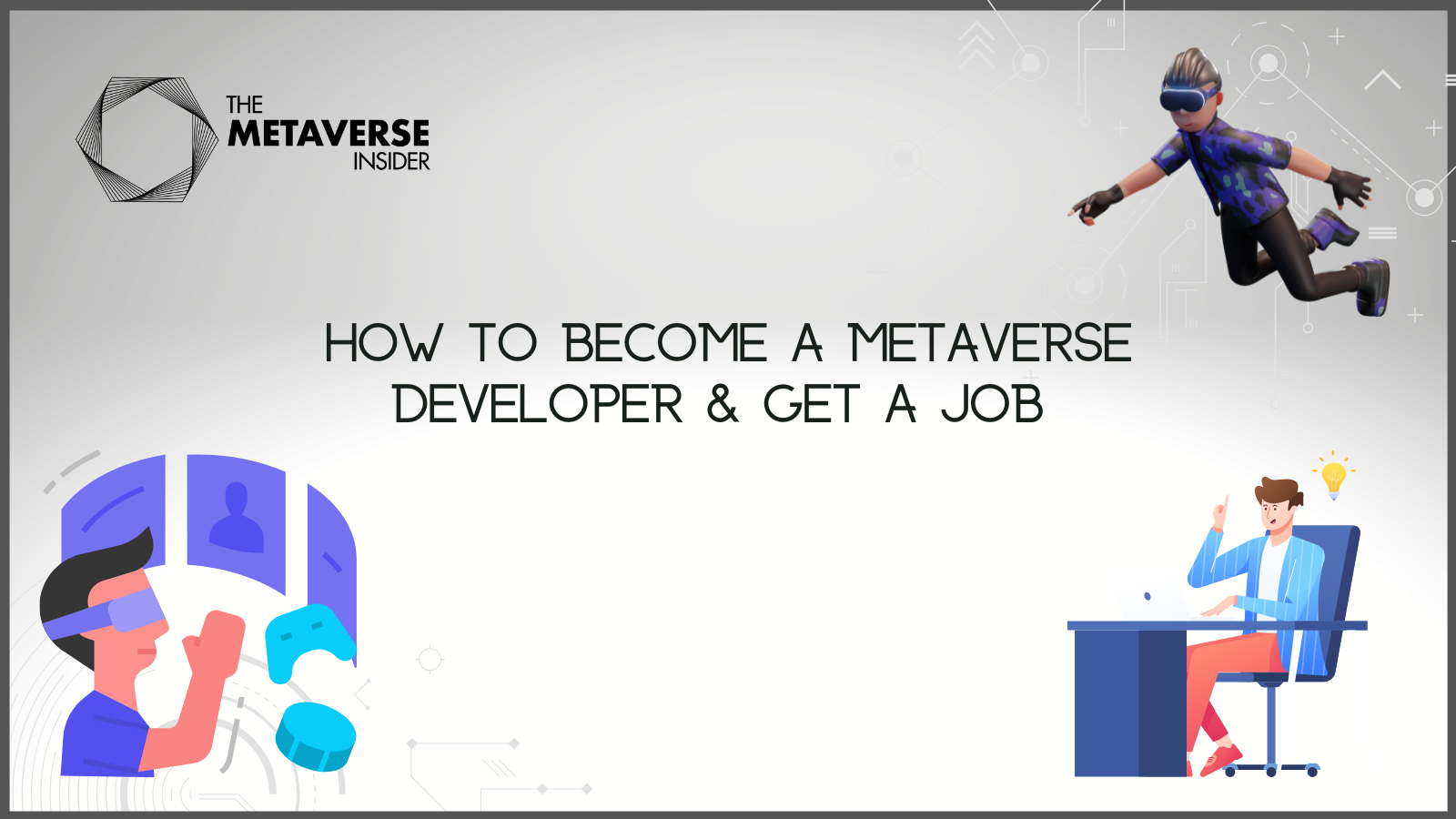The interest in the Metaverse development has skyrocketed over the past year, attracting the attention of tech giants and the financial industry. While the Metaverse concept was first coined in a novel called Snow Crash in 1992, it has become a buzzword in the past year. As traditional tech giants and startups look to compete and get a headstart, the need for Metaverse developers has increased. There has been a drastic increase in the demand for what we now call a Metaverse development in this emerging and fast-evolving industry. Citi’s Metaverse report claimed the market size of the Metaverse could be USD 13 trillion by 2030. Predictions like this caught the attention of investors who want to participate in this space and thus find Metaverse engineers to help them succeed in creating an impact in the industry.
The Metaverse concept has gained traction since Facebook changed its name to Meta last year. The world’s biggest social media company officially rebranding itself to a Metaverse organization has allowed Metaverse developers to work on exciting new projects that could shape our world in the next few decades. Meta has announced millions of dollars in investment for developers investing in apps for their VR headsets and virtual experiences.
This is a great time to start building in the Metaverse space. Despite a bear crypto market, money invested in building Metaverse development projects has remained constant. That’s why Metaverse Insider has assembled this guide to help you become a Metaverse developer.

Metaverse development sectors
Let’s start with what the Metaverse industry entails. The following metaverse market map shows how this industry is divided into different sectors. The Metaverse is not just Virtual Reality or NFTs like most people think. The Metaverse industry needs developers in most of these sectors.

What does a Metaverse developer do?
A metaverse developer designs and produces Mixed Reality interactive and immersive experiences for a virtual world or a Web3 platform. These virtual worlds and media can range from developing Web3 game platforms to creating a virtual experience within a decentralized virtual world. Metaverse engineers should be able to create an engaging experience for all web users.
A Metaverse developer plays a crucial role in all software developments in this space and should be well-versed in one or more programming languages. They write, debug, and execute the application code for the Metaverse they are trying to build. While the job of any metaverse developer is to write code, they can also gather requirements for software and be involved in any software development process. They could also develop and design virtual experiences through digital art by creating engaging experiences in the metaverse virtual world.
So, how to become a Metaverse developer?
To become a Metaverse developer, you’ll first need to be proficient in coding and understand how virtual worlds work. Second, you need to be familiar with 3D modeling and how to use it. Finally, you’ll need to have a strong understanding of the Metaverse mechanics and design.
Further, it is essential to pick which sector is the most attractive to you and what the opportunities are within that sector. Understanding the metaverse ecosystem helps developers choose which sector they want to work in.
Hackathons have become an excellent way to showcase developers’ skills. Most metropolises tend to have hackathons that help developers showcase these skills. However, for those looking for remote opportunities, many prominent Web3 companies like Polygon and TRON hold online hackathons that allow everyone to take part remotely.
Building one’s brand to get noticed in the Web3 space is crucial. Being active in the Metaverse community lets prospective employees know you understand the Metaverse space and have a genuine interest. Perhaps, being active on platforms like LinkedIn, Discord, and Telegram helps developers get noticed too. However, what’s most important for a Metaverse developer is to have excellent skills that will be an asset to the employer. Working on independent projects and showcasing them on platforms like Github is perhaps the best way to become a Metaverse developer.
To become a Metaverse developer, actively look for opportunities on platforms like LinkedIn, Indeed and Angel. With a lot of funding in this ecosystem, there are opportunities for Metaverse developers to build on this platform. Most Metaverse jobs are remote and thus do not confine their employees to a location. Therefore, Metaverse developers are not restricted by location when searching for a job.
Best Metaverse developer jobs
Metaverse development jobs are in huge demand. As investment within various sectors of the Metaverse industry flows, the need for quality Metaverse developers is also growing. Startups with funding and tech giants looking to make a mark in the Metaverse are all competing for talent and providing incentives and attractive packages for their services.
There has been a hiring spree by companies like Facebook, which changed its name to Meta for its VR and AR headset projects. Another tech giant, Microsoft, acquired Activision Blizzard to embrace gaming and invested in virtual workspaces via Teams to compete in the Metaverse revolution.
Emerging platforms in the Metaverse space are also looking to hire Metaverse developers. Decentralized platforms like Sandbox compete for talent to make a mark in this emerging industry. New entrants in the gaming industry like Gala Games and Mythical Games are also hiring.
Here are some of the most popular Metaverse developer jobs:
1) VR Developer
2) Blockchain Developer / Engineer
3) Machine Learning Engineer
4) 3D Game Designer
5) Metaverse Cyber Security Specialist
6) NFT Developer
Difference between a traditional and a Metaverse developer
Traditional Development
For the purpose of this article, a ‘Traditional’ Developer is someone skilled in programming and coding used by Conventional / Web 2.0 companies. They can have the software knowledge taught in many universities and colleges. These are languages that are deployed in most tech companies. These languages include (but are not limited to):
1) JavaScript
2) Python
3) HTML
4) CSS
5) Java
6) SQL
7) NoSQL
8) C#
9) Rust
10) Perl
Traditional companies predominantly use the above programming languages. Most tech companies, including web development, gaming, and data science, require the above-mentioned languages. However, some of these languages are also necessary for Web3 / Metaverse developer jobs. For example, C# and Rust are beneficial to VR developers. Similarly, many blockchain developer courses also teach SQL and Python, as these languages are required and commonly used in the fintech sector.
However, specific additional skills can benefit Metaverse developers and give them an edge over traditional developers as the tech world develops within the Metaverse.
Additional skills needed for the Metaverse development
1) Blockchain Development: Blockchain development is an integral part of many virtual worlds which require blockchain protocols for a virtual economy within the Metaverse. The Metaverse developers who develop blockchain must be able to design blockchain protocols. Developers are required to create and monitor smart contracts according to blockchain protocols. The most popular language for blockchain development is Solidity which is used to develop protocols under the Ethereum blockchain. However, there are a lot of blockchains. These blockchains can be divided into the following four categories.
- Public: These are permissionless blockchains with no restrictions.
- Hybrid: These are a combination of public and private blockchain technology.
- Consortium: These are permissioned blockchains governed by multiple organizations.
- Private: These are permissioned blockchains governed by a single organization.
The image below shows features of all four blockchains and examples of companies that hire Metaverse developers to build and maintain their blockchains.

2) 3D Modelling: 3D technology is an integral part of the Metaverse experience, especially as the interest in virtual reality experiences grows. Developers who want to build 3D experiences must have proficiency with Unreal Engine and Unity tools. Understanding these developer tools will help creators find opportunities with organizations looking for talent in the Virtual Reality space. The visual development tools are also very beneficial for creators who want to build their own 3D projects.
3) Artificial Intelligence: Artificial Intelligence (AI) is integral to the metaverse industry. Decentralization and self-governance are paramount among Metaverse and Web3 enthusiasts. The AI needs to be deployed for these Metaverse experiences to function independently. Artificial development skills are welcomed by many virtual world startups and Web3 gaming companies. To be able to deploy AI models, languages such as Python, C++ and R are popular among employees.
4) Non-Fungible Tokens: NFTs have rapidly gained popularity over the past year as digital art sales took off. In recent times, these NFT projects do not seem to be selling as fast as they were in late 2021 and early 2022. However, there is still space for NFT creators to build avatars, virtual fashion products, virtual real estate, NFT games, etc. All such projects are considered NFTs. Developers who can create these NFTs will be in popular demand by traditional brands looking to get exposure in the Metaverse.
If you’re a Metaverse developer and are interested in learning how to create an Avatar, check out this guide.
Pros and cons of becoming a Metaverse developer?
Pros
The emergence of the Metaverse industry is a fascinating opportunity for many developers. With organizations like Citi estimating that the Metaverse industry will be a $13 trillion market by 2030, this has emerged as a unique opportunity for developers. It is an exciting opportunity for developers who want to be a part of a project or an industry that will impact a generation. It could be an opportunity to be a part of a revolution in how the internet works and how people interact with one another.
Moreover, the demand for Metaverse developers is increasing as organizations have started to announce funding for development projects. For blockchain developers, there are a lot of opportunities like grants offered by organizations like NEAR Foundation, that help developers build the projects they want. For VR developers, more traditional tech giants like Meta have allotted funding to ensure VR developers continue to develop in this space.
Cons
On the other hand, there are some disadvantages to building in this space. The future of the Metaverse is very uncertain. This year’s crypto winter has resulted in various Web3 organizations laying off their staff and retracting offers. Moreover, with popular projects like Axie Infinity’s decline, users have raised question marks over the quality of projects being built and whether their projects will be around in the long term.
You may also like: 6 In-Demand Metaverse Jobs to Start a Career in 2023
The future of Metaverse development
The Metaverse is a very new concept. Metaverse became a buzzword in 2021 when Facebook changed its name to Meta and announced many new projects to work on in this space. Despite the uncertainty, this is an up-and-coming space as some of the biggest companies (not just tech giants) are participating in ensuring their organizations have room in the Metaverse. Thus, it is an exciting time to jump in.
It’s a great idea to talk about this space with your peers and network with the individuals already in this space. People already working as developers (or other jobs) in this space are open and inviting to new entrants into this market. Thus, having soft skills and networking with people in the Metaverse industry is a huge bonus that may not be a technical skill but will provide huge dividends to developers looking into the space.
Lastly, while the future of the concept of Metaverse may not be 100% assured, it is certain that the skills needed by any Metaverse developer will be in demand for a very long time. Accordingly, it is worth learning about skills such as programming smart contracts and creating 3D experiences.
For more market insights, check out our latest Digital Twin news here.













